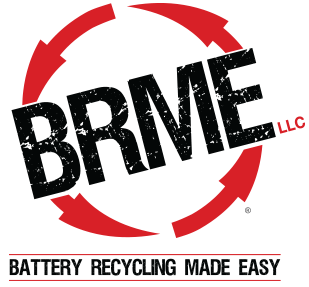Without batteries the convenience of text-messaging would be impossible. Batteries provide energy for countless products and devices, supplying us with the luxuries we enjoy. Every computer, cell phone, portable music player, laptop, radio, automobile and airplane is either wholly or partially powered by batteries. Many people do not realize how important batteries are until their batteries die.
Battery Recycling Made Easy® (BRME) addresses the issue that most modern batteries contain heavy metals and chemicals that are detrimental to the environment. Because of their unique constituents, batteries cannot be simply discarded like typical trash. BRME notes that the chemicals and heavy metals in discarded batteries will eventually contaminate landfills and seep into our groundwater. The best way to avoid this environmental dilemma is to have spent batteries recycled using services like BRME.
The US Government has clearly recognized the importance of battery recycling and the ecological implications of widespread battery usage. Batteries that contain materials such as cadmium, lead, mercury that are not recycled are designated as Hazardous Waste by the US EPA under its Resource Conservation and Recovery Act (RCRA). As a result of public outcry demanding favorable regulations that support recycling, the EPA finally adopted the “Universal Waste Rule (UW)” in 1995, an important regulatory measure that met the public’s demand. Under these new UW Regulations, batteries designated for recycling would be handled as Universal Waste (no longer Hazardous Waste) which diverts material away from landfills to the battery recycler. John Patterson of BRME has been recycling batteries professionally prior to the inception of the UW Rule and has seen it increase the amount of batteries collected for recycling.
Beyond creating peace of mind for business owners, BRME’s battery recycling program is looking out for the environment and helping to secure a greener future for the coming generations.
